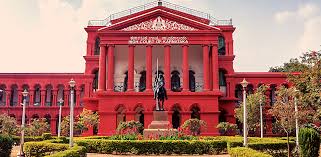“Secularism at Risk: Religious Influence in Courts”
A recent Karnataka High Court decision has sparked concerns about judicial neutrality and secularism. The court suggested an estranged couple seek guidance from a religious leader, raising questions about the blurred lines between law and religion. India’s Constitution guarantees secularism, equality, and non-discrimination, with Articles 14, 15, and 21 reinforcing these principles. The Supreme Court has held that secularism is a fundamental aspect of the Constitution.
In matrimonial disputes, courts must apply personal laws within the constitutional framework, without bias or religious endorsement. The judiciary’s role is to interpret legal rights and duties, not intertwine religious practices with judicial orders. This case highlights the importance of judicial neutrality and the need for courts to remain vigilant against improper religious influence.
A recent High Court order has sparked concern over the separation of judicial and religious authority. The court invited a religious leader to intervene in a marital dispute, raising questions about judicial neutrality and secularism.
Judges, bound by the Constitutional Oath of Office, must uphold secular principles without bias or prejudice. Inviting religious intervention compromises this oath and risks judicial sectarianism.
This precedent may lead to future litigants demanding similar interventions based on their faith, eroding the judiciary’s secular character. It also undermines the inclusive nature of the legal system and potentially marginalizes individuals with different beliefs.
In a diverse society like India, the judiciary must ensure equal treatment under law, regardless of religious affiliations. Courts should employ secular mediation and counseling methods to promote reconciliation, rather than involving religious figures.
The Karnataka High Court’s decision to involve a religious leader in a matrimonial dispute raises concerns about blurring the lines between personal faith and secular authority. This directive departs from the court’s constitutional duty to maintain secularism in justice administration. By seeking religious intervention, the court compromises its neutrality and oversteps its role.
For reconciliation, secular avenues like mediation and counseling should be promoted, not religious delegation. Upholding secularism is crucial for public trust in the judiciary’s impartiality. This well-intentioned but problematic directive needs reevaluation considering broader legal and ethical implications.




